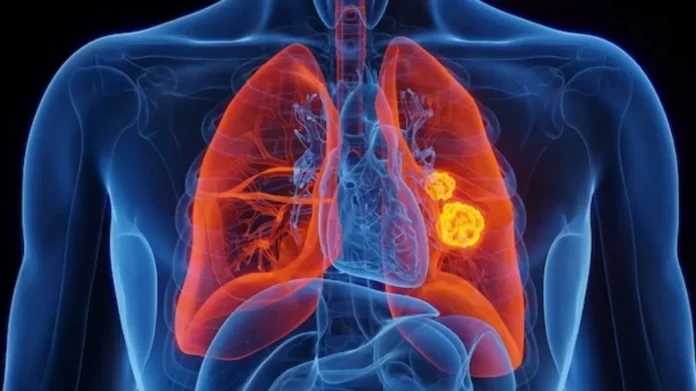Exposure to air pollution, other contaminants and traditional herbal medicines may be contributing to the development of lung cancer in non-smokers, according to a recent study. This groundbreaking research has shed light on a previously overlooked factor in the rising number of lung cancer cases, providing important insights for prevention and treatment.
The study, conducted by a team of international researchers, analyzed the genetic makeup of lung cancer tumors in people who had never smoked. They found that these tumors had similar genetic mutations to those found in smokers, indicating that exposure to certain substances may be triggering the same cancer-promoting genetic changes.
Air pollution is a major concern for many countries, especially in densely populated cities. The burning of fossil fuels, industrial emissions, and other human activities contribute to the release of harmful air pollutants such as particulate matter, ozone, and nitrogen dioxide. These pollutants can enter our lungs and cause inflammation, leading to damage and mutations in our DNA.
Aside from air pollution, exposure to other contaminants such as asbestos, arsenic, and radon has also been linked to lung cancer. These substances are found in various industries and products, including building materials, fertilizers, and tobacco. Additionally, the use of traditional herbal medicines that are not regulated or monitored for safety can also expose individuals to harmful substances that may contribute to lung cancer development.
The study’s findings have important implications for public health policies and individual choices. Governments must prioritize air quality and implement stricter regulations to reduce exposure to harmful pollutants. Individuals can also protect themselves by limiting their time in areas with heavy air pollution, using protective masks when necessary, and avoiding the use of traditional herbal medicines that are not verified and deemed safe.
Furthermore, this research highlights the importance of early detection and screening for lung cancer, especially in non-smokers. As genetic mutations can occur even without a history of smoking, it is crucial for individuals to be aware of the early signs of lung cancer and seek medical attention promptly.
Moreover, this study underscores the need for further research to better understand the role of air pollution, other contaminants, and traditional herbal medicines in the development of lung cancer. With more knowledge and evidence, we can develop more effective prevention and treatment strategies to combat this devastating disease.
It is crucial to note that while this study provides valuable insights, we must not discount the well-established fact that smoking is the primary cause of lung cancer. Tobacco smoke contains over 7,000 chemicals, including at least 70 known carcinogens, making it the leading cause of preventable deaths worldwide. Therefore, quitting smoking remains the most effective way to reduce the risk of lung cancer.
Overall, this study serves as a wake-up call for both individuals and governments. We must take proactive measures to reduce exposure to air pollution, other contaminants, and unregulated traditional herbal medicines to protect ourselves and our loved ones from the devastating effects of lung cancer. With proper awareness and action, we can collectively make a positive impact on the fight against this deadly disease.

